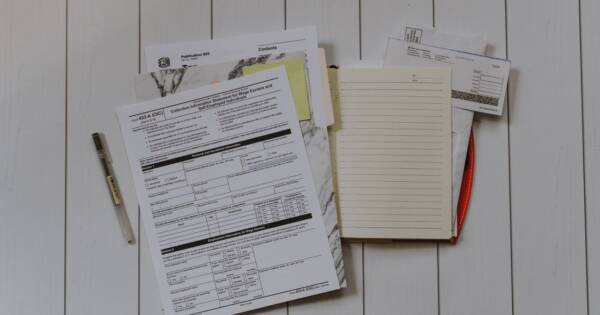Homestead exemptions are the state and federal governments’ way of protecting homeowners from losing their homes during difficult circumstances. In many states, it also includes a property tax break, which is meant to help relieve some financial burden on homeowners. There are important details you should know regarding homestead exemptions.
What Is a Homestead Exemption?
A homestead exemption is a legal exemption from paying property taxes on a portion of a home’s value. Homestead exemption also refers to tax exemptions from some creditors after financial hardships, such as a homeowner’s spouse’s death or after declaring bankruptcy. If a widower can’t afford their bills after their spouse passes, for example, they may feel pressured to sell their home, or if an individual is facing crippling debt and needs to declare bankruptcy, they may be at risk of losing their home. Homestead exemptions can protect your home from creditors if you’re experiencing financial difficulties.
This tax exemption can provide some surviving partners with continued property tax provisions. This is done on a scale, so homes with the lowest assessed values benefit the most.
Homestead literally translates to “the home and land occupied by an individual or a family.” As a result, homestead exemptions only apply to your primary residence.
Who Is Eligible for a Homestead Exemption?
Each state has its own specifications for a residence homestead exemption. For example, in Alaska, homeowners 65 and older don’t pay property taxes on the first $150,000 of assessed value for their primary residence. Some states even have different homestead residence exemptions from county to county.
In most cases, the individual will have to apply on their own and reapply every year for the exemption approval. The protection isn’t usually automatic and homeowners must file for a homestead exemption at their appropriate state government office. Additionally, many states require individuals to reapply if they relocate.
There are some states, such as New Jersey and Pennsylvania, that have no homestead exemptions. However, most states offer some form of this relief.
Homestead Exemption Limitations to Reduce Abuse
Previously, relaxed homestead exemption rules meant that people could file for bankruptcy and keep their multi-million dollar homes. In order to prevent this type of unfair practice, in 2005, the U.S. Congress passed “The Bankruptcy Abuse Prevention and Consumer Protection Act.” It established a $125,000 limit on state home exemptions for individuals who purchased their house within 40 months of filing bankruptcy.
The federal government also sets a bankruptcy exemption amount, typically adjusted every three years. Some (but not all) states allow homeowners to claim the federal rather than the state exemption. Usually, the state exemptions are much more generous than the federal limits. Federal home exemptions are only applicable for individuals filing bankruptcy and not for widowers or property tax relief.
Homestead Exemptions Won’t Stop Foreclosures
Homestead exemptions are meant to provide both financial protection and shelter, so individuals aren’t forced to sell their primary residence. However, the individual will still need to keep up with their mortgage payments. A homestead exemption can’t prevent a bank from foreclosing on a home with a mortgage in default.
Homestead Exemptions May Not Always Deter Creditors
When it comes to homestead exemptions against creditors, the protection only applies for the homeowner’s equity in a home, not its entire assessed value. If the home’s equity is less than the state limit for homestead residence exemption, the homeowner can’t be forced to sell the property. If the equity is higher than the state limit, creditors can force the sale. However, the creditors won’t receive all the money from the sale. Instead, the homeowner gets the monetary amount of the bankruptcy exemption after the sale.
Homestead Exemptions for Property Tax Relief
Homestead exemptions aren’t only for bankruptcy and loss of family members. Some types of homestead residence exemption provide relief from property tax. A specific portion of the home’s assessed value will be exempt from taxes. The rules for this type of exemption vary for each state, but usually, the conditions are:
- The individual must have owned the residence during the prior year
- The property in question must be the individual’s primary residence
- The homeowner is 61 years or older, a military veteran or has from a disability
The homestead property tax is usually applied to a home’s assessed value, which has to be determined by a government tax assessor. Often, the homestead tax exemption is a reduction that continues to be applied every year, but this can vary depending on the state.
Homestead Exemption Example
Let’s say an individual’s primary residence was valued at $300,000. Their state home exemption allows them to have a $25,000 reduction on property taxes. However, this individual is also over 65, so they receive an extra $5,000 deduction. Now, they’re paying property taxes on a home value of $270,000 instead of $300,000.
Some examples showing the different eligibility and allowances from state to state:
- North Carolina: Single homeowners are eligible for an exemption up to $35,000, while married owners are eligible for up to $70,000. Elderly homeowners with a passed spouse can be exempt for up to $65,000.
- California: Single homeowners are eligible for an exemption up to $75,000, while married owners are eligible for up to $100,000. Elderly and disabled homeowners can be exempt for up to $175,000.
- Illinois: Single homeowners are eligible for an exemption up to $15,000, while married owners are eligible for up to $30,000.
Applying for a Homestead Exemption
You will need to go to your secretary of state’s office or state’s tax office for detailed instructions on how to apply for a homestead exemption. For most states, you will need to have the following documents and information ready:
- Proof that you own the property. This proof can be in the form of a property deed, a tax bill or a mortgage bill.
- Proof that the home is your current primary residence. You can prove this with a voter registration card in your name or a U.S. state or federal tax return.
- Your Social Security card or number on a tax return.
- Your driver’s license or passport if you’re a senior citizen who needs to prove your age.
Some states offer the homestead exemption application online, but others will require you to submit an in-person application.






